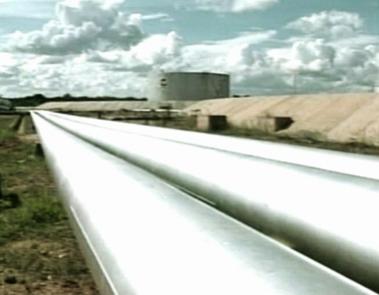Turkmenistan, Afghanistan, Pakistan and India have formally agreed to build a 1,680 km pipeline to supply some 30 billion cubic meters per year of Turkmen natural gas to India, Turkmenistan officials said Tuesday.
The agreement obliges Turkmenistan to sell 30 billion cubic meters of gas to India through Afghanistan and Pakistan.
Kandahar and Herat provinces will be the host provinces of the TAPI pipeline gas project as it will cover 735 kilometers of Afghanistan - almost 44 percent of the pipeline. The country will earn a total of $400 million per year by way of a "transit" fee.
The total estimated cost of the project is predicted to be $8 billion with the Asian Development Bank supporting most of the project, although it is understood it is seeking the participation of a major international company.
Afghan economics professor at Kabul University Hamidullah Farooqi called on the government to take the implementation of the project very seriously.
"The project is very vital for Afghanistan, the government should try to implement the project," Farooqi added.
However, the implementation of the project may face security challenges as Kandahar province has been one of Afghanistan's more unstable provinces in recent years. This will be further tested as foreign troops are also set withdraw by 2014.



Comment this post